Monthly archives: July 2022
Star of the week – Shazia Ladha
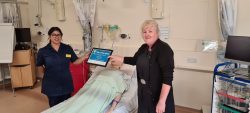
Our Star of the Week is Shazia Ladha, Resuscitation Officer.
Shazia was nominated by her colleagues in the Resuscitation team alongside Resuscitation Council CEO James Cant for her work in supporting the development of Basic Life Support training videos.
Putting Shazia forward for the weekly accolade, James highlighted the support Shazia had offered whilst taking on the role of instructor, remaining ‘exemplar, patient, professional and focussed’ throughout the two days of filming.
Do you know someone in your team that has gone above and beyond the call of duty? Why not put them forward for Star of the Week by clicking here.
Supplier shortage of paediatric attenuated defib pads – actions to be taken
There is currently a supplier shortage of paediatric attenuated defib pads for use with the Lifepak 1000 AED. It is important that expired pads are kept on the emergency trolley and not discarded.
In the interim, it is recommended that a manual defibrillator (Lifepak 20) is attached at the earliest opportunity (if unsure of location, familarisation of nearest device).
When a Lifepak 20 is not immediately available, and if on visual inspection of Lifepak 1000 attenuated pads the gel is in good condition, then you may use the paediatric attenuated Lifepak 1000 defib pads. If the paediatric attenuated defibs pads available are not in good condition use adult pads and non-attenuated energy (in accordance with Resuscitation Council (UK) guidelines.
Heatstroke guidance
With the rising temperatures expected today and tomorrow, it is vital that colleagues are aware and have take the time the read the latest heatstroke guidance so that they and our patients can be kept safe.
Heatstroke is a medical emergency. Clinical features include:
- Core body temperature >40°C
- Central nervous system dysfunction (e.g., altered level of consciousness ranging from confusion to coma [encephalopathy], seizures)
It occurs in the context of passive exposure to severe environmental heat (classic heat stroke) or strenuous exercise (exertional heat stroke).
Heat exhaustion is a mild to moderate heat illness. Clinical features include:
- Normal or slightly elevated core temperature (37°C to 40°C),
- Mild neurological symptoms (e.g., intense thirst, weakness, anxiety, dizziness, syncope), and an intact mental status.
If untreated, heat exhaustion can progress to heatstroke.
To read the guidance including treatment tips, please click here.
Message from West Midlands Fire Service: Heatwave safety
During a heatwave, there is an increased risk of incidents like fire, water rescue and health issues due to the hot weather. Check out West Midlands Fire Service heatwave safety tips to reduce risk and stay safe during the summer. When temperatures soar, we all need to keep a cool head when it comes to our safety.
There’s lots we can do to avoid emergencies in the first place – from being sensible with barbecues, bonfires and near open water, to carefully disposing of cigarettes and matches.
Full details on how to stay safe whilst part taking in these activities can be found by clicking here.
Please also check in on vulnerable relatives, friends and neighbours who might struggle to cope with the heat.
Remember – if you do have an emergency, always call 999.
Chief Executive’s Message – Friday 15 July
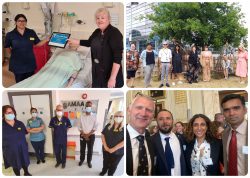
Thank you for your continuing hard work to keep going, delivering safe patient care in these extremely challenging times. As you are aware, our COVID-19 cases in our hospital beds, and in the community are on the rise again. Many of you have fallen victim to this latest wave (myself included – which is my fourth time of catching the virus!), which is proving to be extremely transmissible. Staff absence has increased as people isolate on receiving a positive test result. This is putting additional pressure on all of our teams.
In light of this, on Monday we reintroduced mask wearing in all areas of the Trust (indoors) and we are fully expecting everyone to comply with this vital measure. And, yesterday, we reviewed our staff isolation guidance encouraging people to test from day 4 enabling colleagues to return to work after two consecutive negative LFD tests 24 hours apart, if people are medically well. This strain does not appear to lead to more serious illness among most of the population, however vulnerable people remain exactly that – vulnerable to more severe health outcomes which is why we need to continue to be vigilant, practising our robust infection prevention and control policies to protect ourselves, our colleagues and our patients.
On the theme of vigilance, please be aware that phishing attempts are increasing (people trying to access your email accounts). If you get an email that looks a bit odd, or asks you to download something / click a link, please don’t respond but let our IT helpdesk know on ext 4050. Don’t use the same password for work and home as our IT team won’t be able to help you if your home accounts get compromised.
The urgent and emergency care pressures are continuing and this week have been intense right across the region. We are supporting even more patients due to other partners being very challenged and in a more difficult state than ourselves. And this weekend and the start of next week will lead to severe heat that, as you know, can be dangerous to patients and the population at whole. We are continuing to encourage the local population to take care, avoid the sun and keep hydrated. From Sunday our catering and portering teams will be delivering bottled water out to staff across many clinical areas in recognition of the difficulties in getting a break to replenish your water supplies. It is my promise that water will be on hand for those who need it. Uniform policies have also been relaxed from Saturday morning to Wednesday morning so make sure you are familiar with the alternative options that you can wear at work. Do take care of yourselves and your colleagues over the next few days. Keep an eye out for those around you and check that people have enough water and are protected from the sun as the temperatures soar.
Thank you, once again, for keeping patient safety at the forefront and for your compassion in supporting one another. I am truly proud of all of you.
Black Country Connected – improving digital health inclusion
Black Country Connected is a programme to loan residents in the Black Country a digital device with an option to receive connectivity to enable them to access a range of information which supports their overall health and wellbeing.
This programme is aimed at those who have:
- No/limited access to a digital device
- No/limited connectivity
- No/limited skills to use technology
- No confidence to use a device and who require additional support to do so.
Colleagues can refer patients who meet the criteria above to the programme.
Please download this letter for further details and guidance on the programme, including a referral form.
A patient-facing flyer is also available for promotion.
For further information please email emma.sharman@nhs.net.
The Chief Nursing Officer for England’s policy network has been relaunched
The Chief Nursing Officer for England’s policy network offers nurses and midwives from across England the opportunity to engage with, inform and influence a broad range of healthcare policy for the benefit of their patients, colleagues, and communities.
It is a network for registered nurses and midwives, nursing associates, student nurses and midwives; no matter what their role and no matter where they work. Members are supported to work collaboratively, promoting research and evidence-based approaches to drive change at national, regional and local levels across health and care.
To find out more, join the Policy Network Community on the FutureNHS platform or visit the NHS England Policy Matters webpage. To become a member of the Chief Nursing Officer for England’s Policy Network by completing the short online registration.
Living with COVID-19 Bulletin: Thursday 14 July
1. Masks are now required in all indoor spaces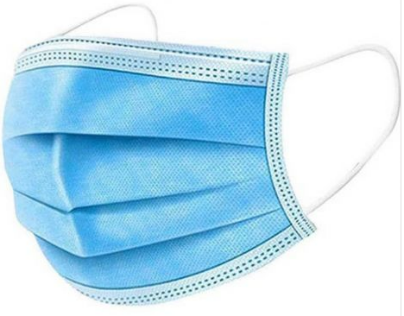
Due to a rise in cases of COVID-19 within the community, in our hospitals and among our workforce, we have reintroduced fluid resistant surgical masks (FRSMs) as a minimum level of PPE in all indoor spaces and areas.
Where face to face meetings need to take place, please ensure that masks are worn and that social distancing measures of at least one metre are in place.
Being cautious keep us safe:
With rising cases of COVID-19, it is clear that we must remain cautious to avoid transmission of COVID-19, in particular to protect vulnerable colleagues and patients. Please ensure that you adopt safe practices and follow our IPC guidance including hand hygiene, PPE and be mindful of social distancing.
Our IPC arrangements continue to be reviewed weekly based on community case rates, hospital outbreaks, inpatient numbers and staff absence due to COVID-19.
Social distancing:
Please consider, where possible, social distancing measures to keep a minimum of 1 metre between you and those around you.
Face masks:
Colleagues and patients are also required to ensure they wear masks in clinical areas and communal areas in our hospital buildings. Colleagues are reminded to ensure they follow the correct PPE guidance when in direct contact with patients. You must also follow your individual risk assessment for PPE. Occasionally this will recommend a higher level of protection depending on your individual assessment.
If you see someone not wearing a mask where they should be, please respectfully challenge them.
Hand washing:
This is an essential part of infection, prevention and control. All colleagues must wash their hands and or use hand sanitiser frequently and always on entering and exiting clinical areas.
Bare below the elbow:
Please ensure that you are bare below the elbow whilst in clinical areas. This means your sleeves must be rolled up and any wrist jewellery should be removed, prior to entering the area.
Coats and bags:
Outdoor coats should be removed prior to entering a clinical area and should be placed, along with bags in lockers. They should not be taken into the main ward area. Handbags should not to be taken on ward rounds
2. COVID-19 testing arrangements – all patient-facing colleagues are required to test twice a week
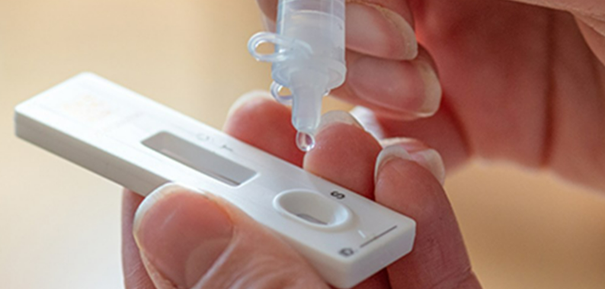
Lateral flow is our main form of COVID testing and patient-facing colleagues are required to complete two tests a week at home before arriving at work. We must remember that as healthcare colleagues, there is still a chance that we will come in to contact with those suffering with COVID-19 and vulnerable patients – so it’s critically important that we continue to test and report.
Staff Isolation and when to return to work
Day 1 of isolation is the day after the staff member has developed symptoms, or if asymptomatic, the date the positive LFT/LIAT/PCR test was taken, whichever is earlier.
Colleagues can return to work when they have had two negative lateral flow tests, feel clinically well and have a normal temperature. The LFTs should be taken 24 hours apart. The first LFT should not be taken before the fourth day and should ideally be taken as soon as possible, on waking.
To read the latest isolation guidance please click here.
Ordering your lateral flow kit:
Lateral flow testing kits can be ordered online. Colleagues can either have them delivered directly to their home address or alternatively collect from community locations. Order your lateral flow kit online here: https://www.gov.uk/order-coronavirus-rapid-lateral-flow-tests.
All completed lateral flow tests must be reported on the Trust Lateral Flow Test reporting form which can be found by clicking here.
Note: To submit results, colleagues will be required to login with their NHSmail email and password.
3. COVID-19 Risk Assessment – have you completed yours yet?
Our Trust is providing risk assessments for all of our colleagues which can help to categorise the level of risk to each individual and enable managers to be provided with the actions they are required to take to keep colleagues safe at work.
If you need to complete a risk assessment, you can do so by clicking here
Heartbeat: Trust receives Heartworks and POCUS simulator worth £75,000
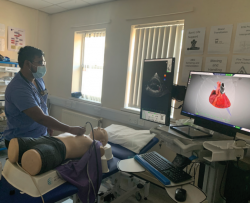
SWB have been gifted a Heartworks and POCUS (point of care ultrasound) simulator courtesy of Intelligent Ultrasound after a successful submission to Health Education England.
The submission was put together by both Sarb Clare, Deputy Medical Director and Acute Physician and Jilly Croasdale, Head of Radiopharmacy Department and Associate Director Healthcare Science and resulted in the Trust being gifted a Heartworks and POCUS simulator worth over £75,000.
The innovate and state of the art simulator will play a key role in educating and training up our clinicians who practice POCUS to echocardiographers who provide detailed scanning for our patients.
Sarb was delighted to hear the joint bid she had put together with Jilly was a success and said:
“I am so over the moon we were successful in our bid. It feels like Christmas has come early for us!
“This simulator will enable us to teach colleagues who are starting in their ultrasound training journey to those who are established to provide consolidation and enable assessments which are mandated for many of the national accreditation pathways.
“COVID-19 has halted training and education and we have a lot of ground to make up, but this equipment will provide us opportunity to teach during COVID surges and it even has a specific COVID module on lung and heart which is critical for clinicians to diagnose COVID-19 as well as recognise the sequelae of this virus.”
Jilly echoes these thoughts and said: “I am so pleased and excited as this will support the training of so many of our staff as this is such an invaluable piece of kit.”
Dr Zubair Rahim Cardiology and General Internal Medicine Trainee recently spent some time with the ultrasound simulator and is currently progressing with his Level 2 BSE (British Society Echocardiography) accreditation.
When asked about his initial thoughts on the equipment he said: “The simulator is very impressive and will allow me as a trainee to understand anatomy as you change the probe position. This is key for me to understand why I may be getting suboptimal images. This will be essential in my training and I am really looking forward to using this alongside my echo training with patients.”
Heartbeat: Calling everyone who plays a role in research
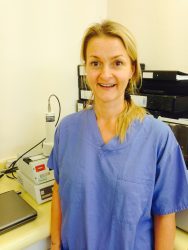
OK, so Nurses, Midwives, Allied Health Professionals, Healthcare Scientists, Pharmacy staff, and Psychologists (NMAHPPS) Research Group is a bit of a mouthful, and it’s not immediately obvious what it’s all about!
To be honest, the group has considered if the name should change, but decided to stick with it. The reason for this is that it’s a term used in other organisations and it does include pretty much all our non-medical colleagues (we hope!)
What we’re trying to do is help advance our research capability as an organisation. We have some great people working here and want to build on this. We want patients to feel that our organisation is a place where research happens, that it’s a forward looking place which seeks to continually improve the care we deliver and is able to offer the most up to date technologies. We want it to be normal to be asked about research!
As a group of non-medical staff, we have focused on this staff group, but it’s important not fall into the trap of working in isolation, reinventing the wheel, or even worse, developing contradictory strategies. Our overall aim is for our organisation as a whole to become known as a place where good research happens, so we must all work together.
However, we feel there is disparity in the amount of research carried out by our different staff groups, and lots of potential to develop it further for all of them. For example, Allied Health Professionals (AHPs) make up a third of the NHS workforce with over 65,500 qualified staff and 13,500 support staff registered in 2018 (NHS Digital, 2018). However, whilst early career medics have access to clinical academic training programmes and 6% of the medical workforce is made up of clinical academic positions, this number drops to 0.1% for non-medical staff, and nonmedical professionals do play a vital role in the delivery of high quality, patient centred clinical research (2018-2020 NIHR Clinical Research Network AHP Strategy).
At an organisational level, health and social care organisations that engage in high quality and person-centred research activity have demonstrated higher rates of patient satisfaction, reduced mortality, improved CQC performance and improved organisational efficiency.
At a departmental level, a strong research culture is associated with reduced staff turnover and better translation of evidence into practice.
At an individual level, it is recognised that research activity can lead to increased perception of skills and confidence in practice and improved job satisfaction.
When you put it like that, why wouldn’t you want to maximise your research capability?!
So, what are we doing about it? As a starting point, we are currently conducting a survey as a benchmarking exercise to see where we stand at the moment. If you haven’t seen the link in the daily communications bulletin, then please have a look at the link below. The survey only takes about 10 minutes to complete and we are interested in any level of research you are doing – this could range from presenting posters at conferences right up to running clinical trials. We’re interested in it all. This survey has been designed to help us understand how any non-medical healthcare professional within SWB currently play an active role with research.
Once we have the data, we intend to use it to help developed a research strategy, to look at providing research training and research opportunities within SWB as we look to develop a more formalised approach to non-medical research within the trust. Although the survey is aimed at nonmedical colleagues, the strategy will need to be Trust strategy.
We really hope you will help us to develop this. We all want to provide the best treatment to our patients. And to do this, we need research.
To complete the survey please click here.
← Older items Newer items →